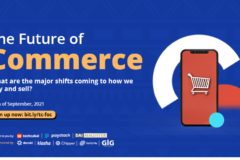
In this article, Oladimeji Amos Oke, Co-founder of NewswireJet and CMO of BeeSparks, shares some insights about how first-party cookies will shape the future of marketing.
With more than 244 million Mozilla Browser users and 664 million Safari users out of the third-party cookie circle, it is only a matter of months before Google Chrome follows the same direction. Although this is by no means their desire, internet users are demanding privacy and data control, and in the future, this will continue to disrupt and shape the world of marketing as we know it.
For marketers, first-party data is the new gold, and its abundance or scarcity will separate the winners from the losers in the next two years. Talking about first-party cookies, marketers can use strategies like Owned Media, including press release distribution, Earned Media (Media Coverage) content marketing strategies like writing blog posts, long-form content, and email marketing.
Talking about first-party cookie strategies, press release distribution services can be a super effective way to drive on-demand target traffic by any brand by using press release distribution services, which can be very affordable. To reduce cost and increase efficiency, an in-house talent can learn how to write a press release as this will help quickly turn company news or milestones into press release publications.
For internet users, third-party cookies are like having a camera fixed in your house because you are renting an apartment at a discounted rate. Nobody wants to lose their privacy, not at any cost and as more people are aware of the throve of data Adtech companies dig out of browsers, third-party cookies will become history in no time.
The past two decades have left the internet open for several massive data breaches, and Ad companies have woven their products around this. September 2021 alone witnessed more data breaches than the whole of 2020, and the trend is not slowing down any moment soon, with the average cost of data breaches up to $4.24M, the highest amount in about 17 years. Legislations such as the GDPR are springing up in different parts of the world, and as Gartner predicted, about 75% of the world’s population will be covered by modern privacy laws by the end of 2023.
Will The World Abolish Third Party Cookies?
Safari and Mozilla Firefox stopped third-party cookies about nine years ago, and since then, the outcry for more data privacy and control has only gotten louder. While the first step taken in 2013 by Mozilla gave users options to block or unblock cookies, Mozilla Firefox took it one step further by blocking the cookies by default after noticing that most users do not put off their cookies.
Most consumers are now aware more than ever about their privacy, considering the massive fall out of scandals like Cambridge Analytica and several data breaches. The emergence of the GDPR in Europe
Marketing Teams: Personalize Experience and Keep Your Eyes on ROI
For marketers, the next big question is how they can build direct relationships with their customers, create value, and boost their advertising performance by relying on consent-drive first-party data. For businesses, the heartbeat of data, either first or third party, is the ability to personalize and conduct precise targeting.
A leading pharmaceutical company, Eli Lilly, used first-party data to drive their digital transformation as their response during the pandemic. After conducting the necessary departmental and executive buy-in, the company increased its ROI between 12% and 35%, depending on the marketing channel.
Research conducted by Google and Boston Consulting Group (BCG) to understand how brands drive marketing success with first-party data strategies. Results showed that using first-party data for key marketing functions delivered up to 2.9X revenue uplift and a 1.5X increase in cost savings. However, it is astonishing that despite the positive impact of first-party data in marketing, most firms are yet to jump on the moving train.
Learning new habits does not come easy but getting burnt by old habits comes at even greater risk. In this fast-paced world where speed is almost everything, businesses will learn to anticipate and react proactively at the same time.
Change can be a painful and lengthy process, but innovation is key to relevance in marketing. Marketers should expect a global disruption between the first six months of the full implementation of zero third-party when Google finally ends cookie collection by the end of 2023.
There is still enough time to strategize, test, analyze, and find the winning strategy with two years to go. In this case, it is not a matter of if, it is a matter of when. There should be a working strategy for innovative and agile companies that will serve as a transition guide and process implementation guide that will help them test and validate what works. First-party data enables you to gain insight and provide an improved experience to your customers which will ultimately increase their loyalty and drive better business results.
Follow Oladimeji Oke for more innovative marketing insights on his LinkedIn account.



















